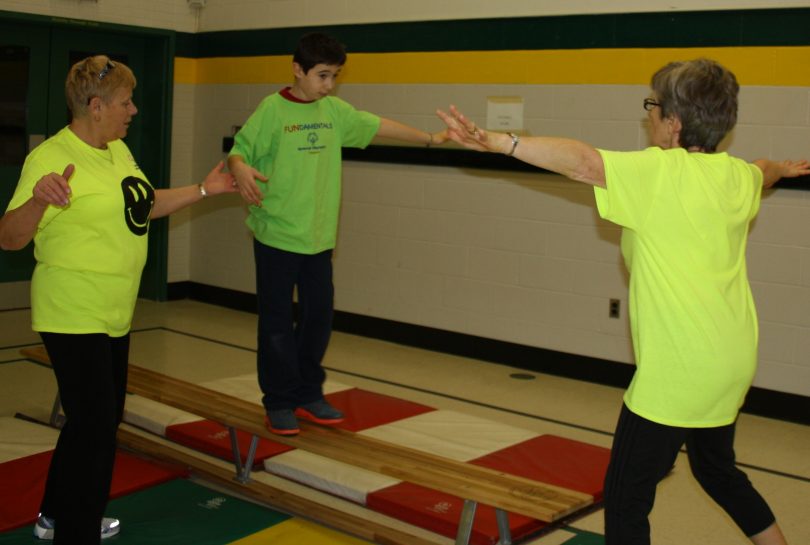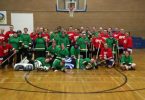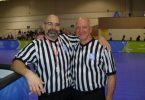Submitted by Special Olympics – London
This past fall, Special Olympics London began two new volunteer-run programs, Active Start and Fundamentals, both for young athletes. Sport Manager, Janine Shantz, says she believes there was a need to introduce younger athletes to the Special Olympics programs.
“I see these pair of programs as a chance for children to develop motor and movement skills in a positive environment that promotes physical activity while having fun and learning,” she said.
The program Active Start is essentially a gateway to Special Olympics. For children aged four to six with an intellectual disability, it is designed to help develop basic motor and movement skills. Through play, the weekly sessions offer participants an opportunity to improve physical, social and cognitive abilities to prepare them for successful participation in future athletic activities. The Fundamentals program has similar goals, but is for youth aged 7-12.
Both programs quickly filled up and with a waitlist now in place, Special Olympics is looking at expanding the programs to enable more children to get involved.
“Both programs function with parent or caregiver involvement,” said head coach Ruth Ann Mills. “Having family involvement further helps participants to develop self-esteem, confidence and socialization with peers.”
Activities in Active Start include running, balancing, and jumping, while in Fundamentals, participants work on specific sport skills such as transportation skills, kicking, throwing and catching. The sessions are lively and fun, with the young athletes challenging themselves to develop the new skills.
“We are teaching these young participants that activity is fun and can and should be a part of everyday life throughout their lives,” said Shantz. “If they learn skills that can be transferred to other sports and other areas of their lives, then we’ve achieved a goal. If they also learn, though, that activity is important, then we’ve achieved a whole lot.”
www.osolondon.com



